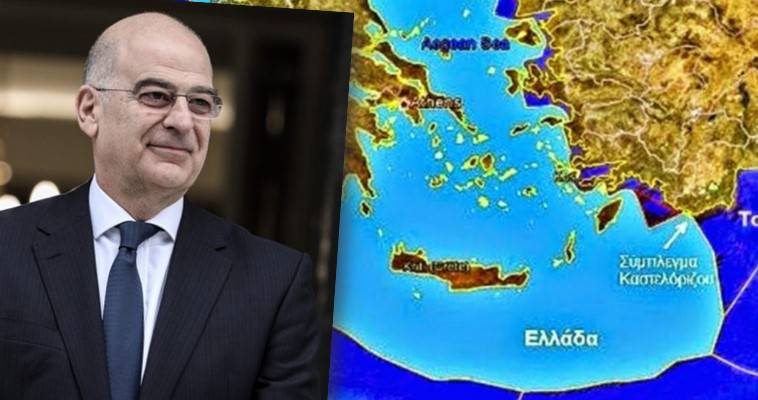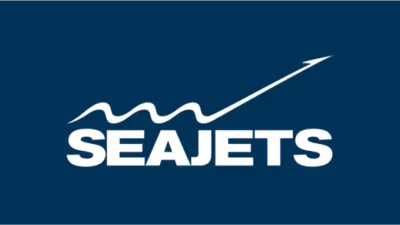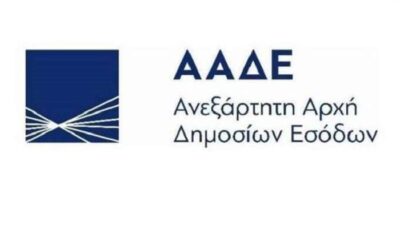Stavros Lygeros: Revealed: Partial demarcation with Egypt – Reduced influence of Crete!
06/08/2020
Greek Foreign Minister Dendia’s sudden trip to Cairo – according to reliable information – concerns the completion of the ongoing negotiations for a partial delimitation of the EEZ with Egypt, which was reflected in an agreement. As we revealed weeks ago on this site, the demarcation will not only be partial, but will most likely provide reduced impact for the islands of Rhodes, Karpathos, Kasos and Crete!
More specifically, the agreement – according to diplomatic sources – will probably provide 55% for Egypt and 45% for Greece, instead of equidistant middle line (50% for both sides)! It should be noted that the initial requirement of Cairo was for the ratio to be 60% to 40%, while the Greek counter-proposal was 55% to 45%! It remains to be seen exactly how the sea area that will be ceded to Egypt will be distributed on the map, in order to reduce reactions in Greece.
A second element of the agreement to be signed is that the demarcation does not only leave out Kastellorizo, but also the whole of Rhodes! Athens appears to be legitimizing the long-standing Turkish expansionist strategy of appropriating the Eastern Mediterranean east of the 28 meridian, which intersects Rhodes in the middle.
Until the signing of the Ankara-Tripoli memorandum (November 2019), with which the Turks entered into claims west of the 28th meridian, the limit they had set to the west was the 28th meridian. Greece, therefore, took care to delimit the sea area west from 27:59 ‘meridian with Egypt. In this way Greece indirectly but clearly recognizes rights to the Turks at the imaginary limit of the 28th meridian and further east.
Athens’ hurry on the delimitation of the EEZ with Egypt on extremely unfavorable terms for Greece will be justified by the Mitsotakis government, arguing that the signing of an agreement is the only way to challenge the outside international law Ankara-Tripoli memorandum. The argument is not unfounded, but by no means does it justify partial delimitation, and more importantly reduced influence.
They’re opening champagnes bottles in Ankara
If Crete, one of the largest islands in the Mediterranean, has reduced influence through Greek signature, then all the established arguments of Athens for the Aegean islands are collapsing with all that entails. The exclusion of not only Kastellorizo, but also eastern Rhodes from the demarcation is an additional reason for Ankara to open champagnes.
At this point, it is useful to recall Cairo’s official reaction to the recent Turkish Navtex (21 July 2020) for exploration in the sea area south of Kastellorizo, where – based on the equidistant middle line principle – the potential Greek EEZ meets those of Cyprus and Egypt. In a statement, the Egyptian Foreign Ministry had protested that the Turkish Navtex had violated the Egyptian EEZ. With that announcement, Cairo essentially declared that it did not recognize full influence for Greek islands.
This announcement was not a bolt out of the blue. By indirectly but explicitly recognizing the older Turkish border (28th meridian), Egypt had previously attempted to seize by force Greek EEZ (because of Kastellorizo) in the area that the Turkish Navtex had committed to research, with the result that the demarcation negotiations . In order to remove it, both the previous and the current Greek government were oriented towards the “solution” of the partial demarcation, ie west of the 28th meridian.
An additional reason that Greece was reluctant to claim its sovereign rights east of the 28th meridian is that it feared Ankara’s reaction. To be precise, it feared that Turkey would proceed with research and drilling in that sea area, posing for Athens the dilemma of either accepting what was done or reacting militarily in a geographical area that is favorable to the Turkish armed forces. This was the deepest reason that Athens has avoided submitting coordinates for the external borders of a potential Greek EEZ.





